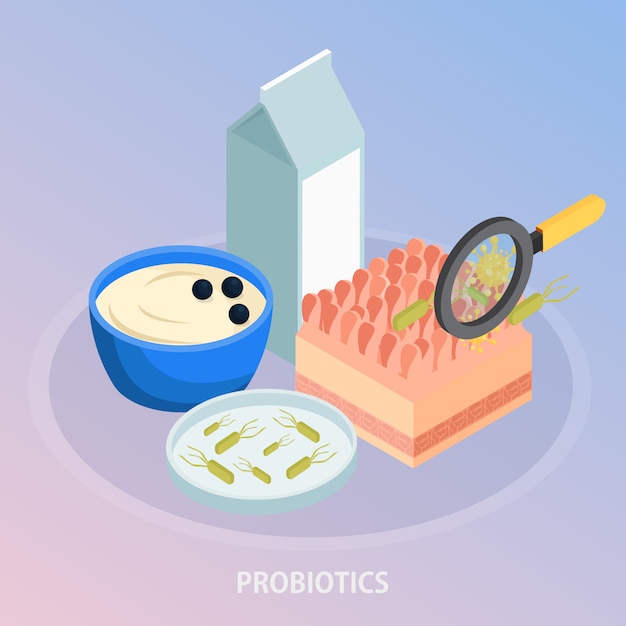
Bacteria can be good for you. While harmful bacteria can be deadly and are fought off with antibacterial products, the right kind of bacteria, known as probiotics, can be incredibly beneficial. Probiotics are live microorganisms that help prevent and treat illnesses, keeping the immune system and digestive tract healthy. They can be ingested through supplements, beverages, and foods.
Probiotics, a term derived from Greek meaning “for life,” were discovered in the early 20th century by Elie Metchnikoff. He noted that rural Bulgarians lived longer despite harsh conditions, attributing their longevity to probiotics in fermented foods like sour milk.
In 2013, the International Scientific Association for Pro and Prebiotics defined probiotics as live microorganisms that confer health benefits when consumed in adequate amounts. Studying probiotics involves experts in various sciences, including pediatrics, gastroenterology, and microbiology. There’s a distinction between products rich in probiotics and those with active or live cultures.
For a product to meet the “live and active cultures” criteria, it must contain viable microbes at specified levels and demonstrate a positive effect on human health, even without extensive scientific evidence. Probiotic products making health claims must meet rigorous criteria, including defined strains and proof of efficacy.
The body hosts both good and bad bacteria, and maintaining the right balance is crucial for health. Factors like age, diet, and genetics influence this balance. An imbalance, known as dysbiosis, can lead to health issues such as ulcerative colitis, irritable bowel syndrome, and obesity. Prebiotics, which are non-digestible carbohydrates, support probiotics, creating a synergistic effect known as synbiotics. Prebiotics help nourish beneficial bacteria in the gut, aiding in the prevention and treatment of various health issues, including gastrointestinal problems, allergic inflammation, and even bone health improvements.
Most prebiotics are oligosaccharides, resistant to digestion, and fermented in the colon to produce short-chain fatty acids that nourish gut microbiota. They can be found in natural sources like asparagus, bananas, and chicory, or synthesized. Continuous research highlights the health benefits of prebiotics.
Microbiomes, including bacteria, viruses, and fungi, are tiny organisms residing throughout the body, influencing health. The human body hosts more microorganisms than cells, underscoring their significance.
Probiotics, present in our bodies from birth, play protective roles in the digestive tract and immune system. They maintain a healthy balance of good and bad bacteria, essential for digestion and immunity. Probiotics can help manage conditions like antibiotic-induced diarrhea, IBS, and even skin infections. Emerging research links probiotics to benefits for the reproductive tract, lung health, and more.
Various types of probiotics, including Lactobacillus, Bifidobacteria, Saccharomyces boulardii, and others, offer specific health benefits. They can prevent or treat conditions like yeast infections, UTIs, IBS, and lactose intolerance. The effectiveness of probiotics depends on the specific strain and dosage.
To work effectively, probiotics must be alive and present in sufficient quantities. Storage and potency are crucial to ensure their efficacy. The right type of probiotic depends on individual health needs, and consultation with a doctor is recommended.
Probiotics are generally safe, though mild side effects like gas and bloating can occur. They help balance good and bad bacteria, crucial for digestive and overall health. Foods rich in probiotics, like yogurt, kefir, and kimchi, offer additional health benefits.
In conclusion, probiotics are beneficial microorganisms that promote health, especially in the digestive system. They can prevent and treat various conditions, including digestive issues, mental health problems, heart health, and skin conditions. While generally safe, it’s essential to consult a doctor before starting probiotic supplements, particularly for those with underlying health conditions. Probiotics are a valuable addition to a healthy diet, providing numerous health benefits.